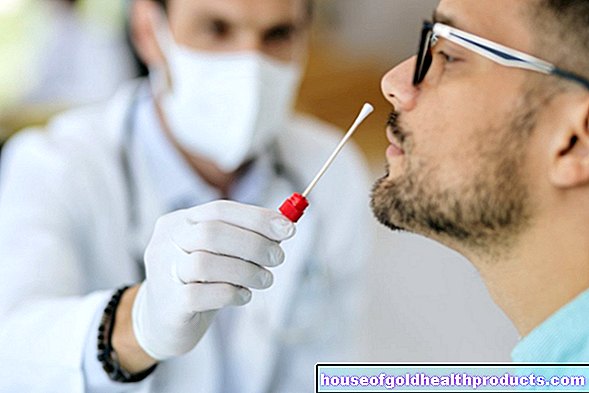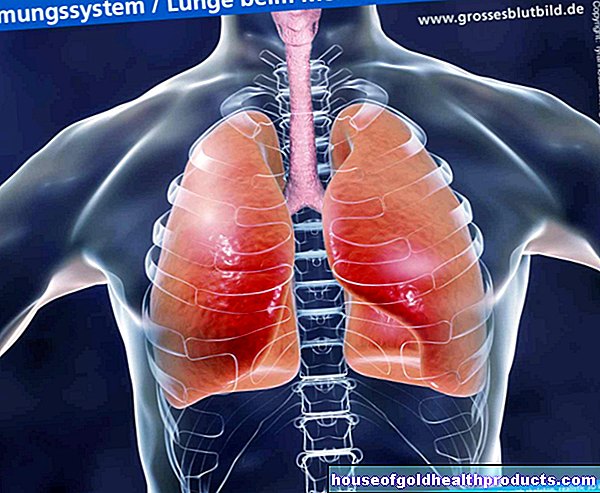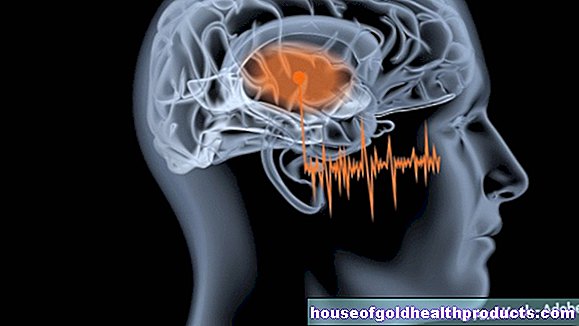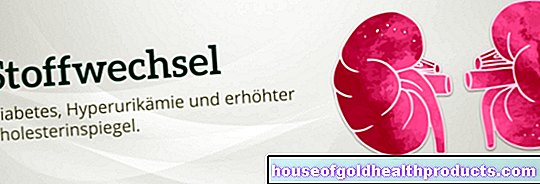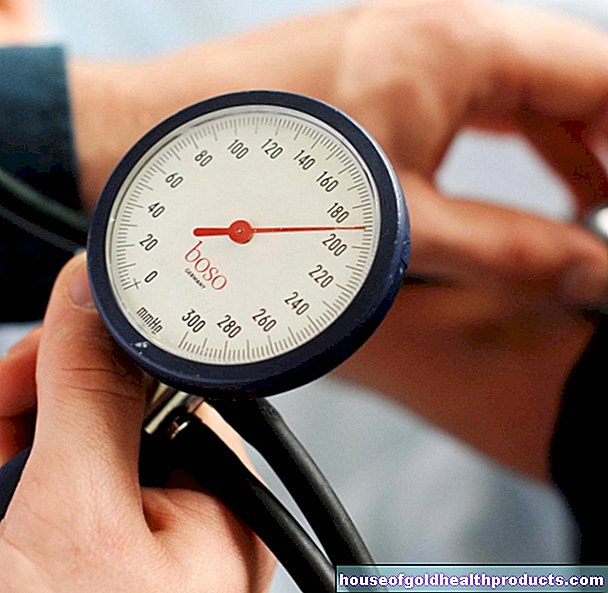Depressed by Inflammation?
All content is checked by medical journalists.It is still not known exactly why some people develop depression. Scientists have long suspected that inflammatory reactions in the body could play a role here. Now, for the first time, it has been possible to demonstrate a mechanism that may be related to it: Certain immune messenger substances, the so-called cytokines, may also migrate to the brain, where they could cause the typical symptoms of depression.
Cytokines are small protein molecules that coordinate and control the activity of immune cells, among other things. In the case of infections, for example, but also internal repair processes, they fuel the immune system. This could affect how the brain functions and thus mood.
Inflammatory substances in the nerve water
Researchers led by Harald Engler and Manfred Schedlowski from the Essen University Hospital have now demonstrated for the first time that the concentration of the cytokine interleukin-6 increases significantly not only in the blood, but also in the cerebrospinal fluid, the so-called liquor, in the course of an acute inflammation.
To do this, they administered either a so-called endotoxin or a placebo to 18 healthy men. Endotoxins are components of bacteria that the immune system reacts to. In this way, the researchers were able to provoke inflammatory processes in the test subjects' bodies. In fact, increasing concentrations of interleukin-6 could then be detected in the CSF. The higher the concentration - the more pronounced depressive symptoms the participants developed.
Biological advantage
The main symptoms of depression include listlessness, joylessness, dejection and emptiness. They lead to a social withdrawal - and this is biologically desirable in the event of illness: On the one hand, because the sick person recovers faster, on the other hand, because the risk of infecting others is reduced. In this respect, it even makes sense from an evolutionary point of view to react to an infection with depressive symptoms
New strategy for therapies?
The scientists now suspect that interleukin-6 also reaches the brain via the bloodstream and influences processes there that can lead to depression. This supports the hypothesis that inflammatory processes could be a possible trigger for depression. It remains to be seen whether drugs that specifically block the production of interleukin 6 will help.
In fact, a significant number of patients with depression do not respond or respond only insufficiently to treatment with common antidepressants. These aim to restore the balance of certain mood-affecting hormones such as serotonin in the brain. Around four million people in Germany are currently suffering from depression.
Tags: toadstool poison plants prevention prevention



